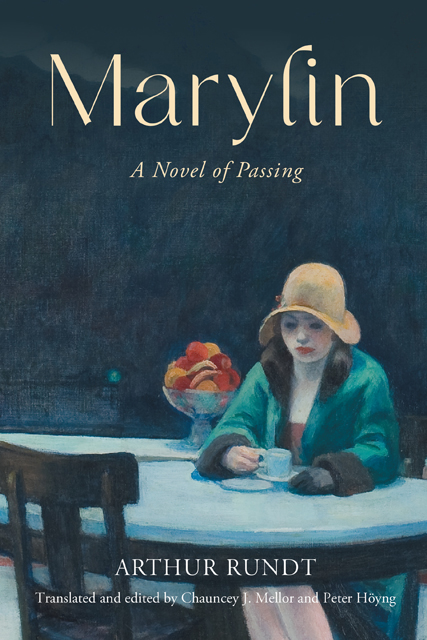Book contents
Afterword
Published online by Cambridge University Press: 12 January 2023
Summary
The Story Marylin was initially serialized in the newspaper the Neue Freie Presse in forty-three installments, starting in September 1928. The text wasn’t published as a novel until 2017, when the Viennese publisher Edition Atelier released a copy of the novel in full. The story begins in Chicago and includes a brief stop in Cleveland before centering most of the action in New York. The focus of the novel is the relationship between Philip and Marylin. Philip is a young architect working in downtown Chicago. Marylin is the beautiful woman who also works downtown and crosses paths with Philip on the train each day, during his commute. His obsession with her beauty leads him to start shadowing her for several weeks, eventually finding out where she lives and where she spends her free time, before he gradually works up the courage to try to communicate with her. As Primus-Heinz Kucher writes, the style of the novel very much reflects the style of Neue Sachlichkeit or “New Objectivity,” a German literary genre from the 1920s and ‘30s “characterised by the use of realistic, sober and matter-of-fact forms which contrast with the exuberant pathos and inclination towards abstraction of expressionism.” Erich Maria Remarque’s classic Im Westen nichts Neues (1929; All Quiet on the Western Front, 1929) stands as the best-known example today. One trademark of Neue Sachlichkeit is its distance when describing the world around the main characters, excluding any mention of psychological motivation or environmental influence, no matter how harsh. Rundt’s approach in the novel to depicting race and revealing Marylin’s secret is closely related to New Objectivity. In that sense, in his fictional narrative Rundt re-creates the role of the observant but distant reporter featured in his book Amerika ist anders (1926; America Is Different).
In addition to this detached writing style, another contemporary theme the novel takes up is the life of white-collar workers in the big city, something that very much interested German audiences at the time: “an existence that’s similar to an assembly line, uninterrupted except for the occasional trip to the movies and a few, fleeting social contacts.”
- Type
- Chapter
- Information
- MarylinA Novel of Passing, pp. 107 - 123Publisher: Boydell & BrewerPrint publication year: 2022



